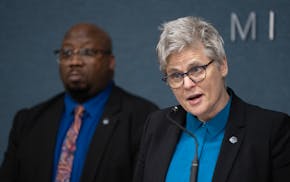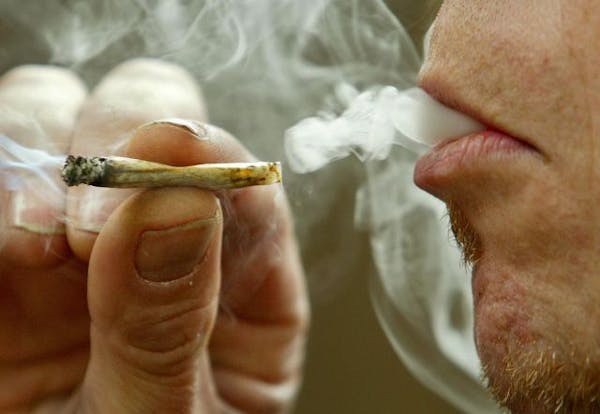Hennepin County Sheriff Rich Stanek's commentary ("Lax marijuana enforcement puts us on a dangerous road," Sept. 18) predicts all manner of doom thanks to the U.S. Justice Department's refusal to enjoin Washington and Colorado legalization measures.
Stanek writes that the department's approach means that "keeping neighborhoods safe will become more difficult." Yet in the very next paragraph, he claims that the lack of response "will encourage other states to legalize marijuana."
Why would the other states, seeing the devastation he predicts in Washington and Colorado, then move to legalize marijuana? Can both suppositions be true?
The sheriff is concerned about trafficking across state lines, I suppose to the states that weren't encouraged to legalize marijuana. As I understand it, that would still be a crime now, after legalization in two states, just as it has been a crime for 42 years. It's never been stopped before legalization, and it will never be stopped after legalization. That's because you cannot repeal the law of supply and demand.
Stanek is terrified of the alleged increases in "drugged driving," noting statistics that prove only that more people are smoking marijuana. Fatalities involving drivers who test positive for marijuana only show they had smoked some time before, not necessarily that they were stoned at the time. Besides, Stanek notably fails to mention that overall fatalities, including those involving drunken drivers, are down in Colorado.
Stanek even dusts off an oldie but goodie, saying, "Marijuana is an addictive gateway drug." This despite every major organization that has studied this since our own Institute of Medicine in 1999 agreeing that the gateway theory is a myth. Countries like the Netherlands that have separated "soft" drug markets for marijuana from "hard" drug markets have seen much lower hard-drug addiction problems.
"Drug task forces here have linked marijuana to assaults and homicides," warns Stanek, which is doubtlessly true, since prohibited markets settle their disputes not with courts and lawyers, but with guns and bribes. Nobody sees Leinenkugel and Pabst Blue Ribbon dealers shooting it out on the streets of Minneapolis, do they? Can you recall the last major assault case over a pack of cigarettes?
Stanek is also concerned that the Justice Department inaction "sends the wrong message about the dangers of marijuana, especially to youths." I wonder how the sheriff thinks we're sending the right message to youth about cigarettes, use of which is down among teenagers to its lowest-ever recorded levels, even though cigarettes remain legal? How did we manage to send the right message without arresting and imprisoning adults who smoke cigarettes?
The debunked harms to learning and IQ that Stanek cites seem to argue that we ought to check the IDs of cannabis consumers, unlike the situation now. The harm to youths argues for placing weed behind the counter. And his citation of more kids in rehab for marijuana is also moot when getting caught with pot equals a sentence to rehab.
Finally, Stanek promises that legalizing marijuana will not end criminal gangs. On that we can agree. Criminals commit crimes — always have and always will.
What we're saying is how about we make marijuana one of the crimes they can no longer commit? Why should otherwise law-abiding cannabis consumers be forced to participate in a criminal market? Why give such a lucrative market to criminals when we can tax, regulate and control it for society's benefit?
The fact is the sheriff and all the law enforcement organizations he writes on behalf of are merely protecting their budgets.
Stanek is the president of the Major County Sheriffs' Association. Sheriff's offices get a large amount of funding from federal grants that target drug crimes (but no other crimes) and reward departments for their increasing arrest numbers. They also receive a huge bounty in civil-asset forfeitures, through which they can keep the cash, cars and homes of people caught for marijuana.
--------------------
Russ Belville is a talk-radio host and advocate for drug law reform in Portland, Ore.

BWCA's future likely hinges on election
Saving the dinosaurs: Why there's a future for community newspapers
Readers Write: Gun storage laws, Uber and Lyft, 24/7 businesses, the pipe organ


